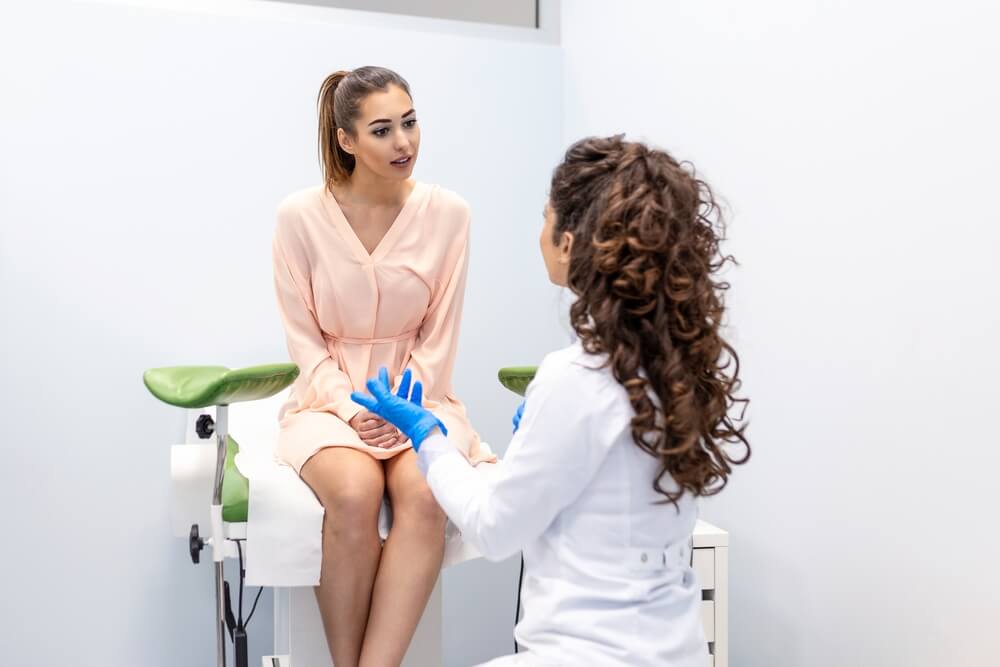In most cases, vaginal pain is harmless and common. However, sometimes it can be the underlying symptom of something more serious. This expert article outlines and explains the eight most common causes of sharp pain in the vaginal area and what you can do about it. You will learn about vulvar pain, what causes it, the diagnosis process, and possible treatment methods. Educate yourself to ensure that your health is optimal and your quality of life quality boosted. Before anything else, you will want to reach out to a gynecologist in Loxahatchee, FL. By consulting with a professional first, you’ll receive hands-on tips and guidance on how to deal with your condition. Get diagnosed and treated early to ensure a speedy and successful recovery.
That said, here is what you must know about pain in the vagina.
What Is Vulvar Pain?
Vulval pain or vulvodynia refers to unexplained and persistent pain in the patient’s vulva. For reference, the vulva is the female genital area that includes the skin that surrounds the vagina’s opening. Any woman can deal with this type of pain. While pain in the vagina is often harmless, it can be a sign of something more serious. Moreover, vulval pain can develop into long-term complications that are extremely difficult to live with. Fortunately, there are many things patients can do to alleviate pain and maximize life quality.
Reasons Why You May Have Vaginal Pain

There are eight main reasons for vaginal pain. Here are some of the most common reasons and what you need to know about them. With that in mind, you can experience pain in the vagina for a myriad of reasons. Never attempt to self-diagnose or self-medicate. Instead, reach out to experts at a safe and reliable clinic. We suggest making an appointment at Comprehensive Obgyn of the Palm Beaches, FL.
Now, here are the eight reasons for pain in the vagina that you need to be aware of.
- You Have a Yeast Infection
While burning and itching sensations are the most common signs of yeast infections, pain can also indicate that something is off. Experts claim that the yeasts in or outside your vagina can cause redness, swelling, and abnormal discharge. The usual treatment involves over-the-counter or prescription medication advised by your doctor. Your healthcare provider will prescribe the best medicine to help your symptoms go away.
- You Are Dealing With Bacterial Vaginosis
Some patients with bacterial vaginosis or BV can also deal with sharp pain in the vaginal area. Typically, the symptoms involve vaginal itching, discomfort, abnormal (watery) discharge, and a foul odor. Treatment requires the use of antibiotics (creams or a pill).
- You Have a Sexually Transmitted Infection
Pain in the vagina can happen due to STIs or sexually transmitted infections. Sexually active individuals (especially those who do not use condoms or change partners often) have the highest risk of getting an STI. The most common STIs that can cause pain in the vagina are gonorrhea, chlamydia, and herpes. Herpes, in particular, is inflammation or nerve-related. The specific lesions associated with herpes can cause pain and discomfort. The best treatment for STIs will involve antibiotics (but in the case of STIs like herpes, there is no cure). Make sure to practice proper prevention methods like condom usage or abstinence. To avoid pain in the vagina and STIs, it is best that you and your partner get checked and treated for sexually transmitted diseases regularly.
- It Might Be Vaginal Dryness
If you have low estrogen levels in your body, you may experience vaginal dryness. As a reminder, estrogen helps increase blood flow to your vagina, and it also boosts lubrication and elasticity. When you have low estrogen levels in your body (whether due to menopause, breastfeeding, or contraceptive pills), you can experience sharp pain in the vaginal area. Patients struggling with vaginal dryness should seek guidance from a medical professional. Your doctor will suggest a quality topical cream or advise you to use another contraception method.
- You Could Have Pelvic Floor Dysfunction
Patients who experience vaginal pressure or pain may have pelvic floor dysfunction. This is a common condition where the patient cannot coordinate or relax the muscles in the pelvic floor to have proper bowel movements. Often, women with pelvic floor dysfunction deal with painful sexual intercourse. Fortunately, vaginal pressure and pain due to pelvic floor dysfunction can be treated with regular physical therapy. The doctor can also suggest relaxation techniques and medications to relieve vaginal pressure or other uncomfortable symptoms.
- Sometimes, It Can Be Vulvodynia
Chronic pain that does not have a known cause is vulvodynia. Approximately nine percent of females will experience vulvodynia at any point in life. Women with vulvodynia can feel a sharp pain in the vaginal area that usually comes and goes. Topical medications like lidocaine may be effective in helping with vulvar pain.
- Endometriosis Is Another Common Cause
Around 11 percent of women in America who are of childbearing age have endometriosis. According to experts, this is an extremely painful condition. Patients have scarring and chronic inflammation around tissues which can lead to pain. This sharp pain can manifest in a few ways, including chronic pain in the pelvis, painful menstrual cramps, and pain after or during sexual intercourse. A medical expert will diagnose endometriosis via imaging tests and a pelvic exam. You may find out whether endometriosis is causing sharp pain in the vaginal area by having a laparoscopy. The usual treatment involves surgery or hormone therapy.
- It May Also Be Cervical Cancer
HPV, or the Human Papillomavirus, is the number one risk factor for cervical cancer. It is believed that at least 50 percent of sexually active individuals will have the Human Papillomavirus at any point in life. Luckily, few women actually develop cervical cancer. Experts recommend getting the HPV vaccine and undergoing regular screening. Besides brown discharge and abnormal bleeding, individuals with cervical cancer can also have pelvic pain. Treatment for cervical cancer will vary, depending on its stage and type. Usually, cervical cancer is treated with radiation, chemotherapy, or surgery.
How Is Pain in the Vagina Diagnosed?

Individuals experiencing recurring or persistent vaginal discomfort or pain should always prioritize doctor’s appointments. The healthcare professional will request your medical history and ask about your symptoms. Always be honest and transparent with your doctor about the symptoms, as these will help the expert make an accurate diagnosis. Also, you will undergo a physical exam and, if required, a few tests.
If you are physically active, your healthcare professional will ask you about your habits and your sexual health.
The doctor will look for signs of damage, swelling, scarring, or redness during the physical exam. Moreover, they could apply pressure to the vagina or the vulva to see if the patient feels pain. For instance, individuals with vulvodynia may feel a sharp pain.
Sometimes, a vaginal discharge sample is also required. The doctor will send the sample for further testing to check for fungi, viruses, or bacteria. If cervical cancer is the reason for pain, the patient will need more testing. That said, pain can also have psychological origins. If this is the case, the doctor can refer the patient to a mental health expert.
Give Us a Call Today
Are you ready to improve your life quality and get rid of the pain for good? Make an appointment at Comprehensive Obgyn of the Palm Beaches, FL, to get started today.


